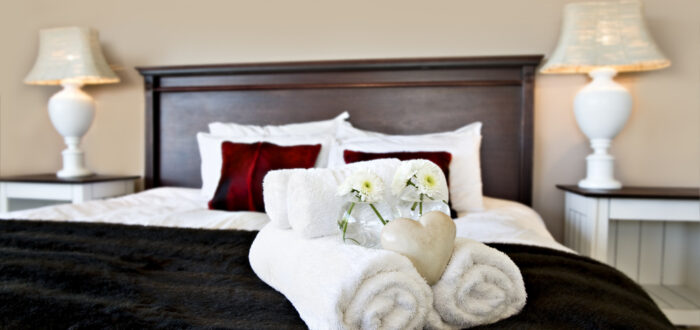Traveling can be a wonderful and enriching experience, but for those with hearing loss, it can also be a challenging one. When staying in a hotel, there are a number of things that can be done to make the experience as enjoyable and comfortable as possible.
Today, we’re exploring some tips and strategies for maximizing your hotel stay, from researching and booking the right hotel to utilizing technology and communicating effectively with hotel staff.
How to Make the Most of a Hotel Stay with Hearing Loss
With the right preparation and accommodations, it is possible to make the most of a hotel stay with hearing loss. Here are some tips for making the most of a hotel stay with hearing loss.
Research and Book the Right Hotel
When booking a hotel, do your research and choose one that has the features and accommodations that will best meet your needs. Look for hotels that have accessible rooms with features like visual alarms, flashing lights, and bed shakers. Some hotels also offer amplified phones, closed captioning on TVs, and sign language interpreters. Make sure to inform the hotel of your specific needs when making your reservation.
Request Special Accommodations
When you arrive at the hotel, be sure to inform the staff of your hearing loss and any special accommodations you may need. This may include a room on a lower floor, a room with a visual alarm, or a room with a phone that has amplified sound. The hotel staff will do their best to accommodate your needs and make your stay as comfortable as possible.
Use Technology
Technology can be a great help when it comes to making the most of a hotel stay with hearing loss. There are a number of apps and devices that can help you communicate more effectively with hotel staff and enjoy your stay to the fullest. For example, there are apps that can transcribe speech into text, which can be a useful tool when speaking with hotel staff who may not be familiar with sign language or may have difficulty understanding your speech.
Bring Your Own Devices
If you have hearing aids or cochlear implants, be sure to bring them with you on your trip. You may also want to bring a portable FM system or other assistive listening device to help you hear better in noisy environments. If you’re traveling by plane, be sure to check with the airline beforehand to ensure that your hearing devices are permitted on board.
Communicate with Hotel Staff
Communication is key when it comes to making the most of a hotel stay with hearing loss. Be sure to communicate your needs and preferences clearly to hotel staff, and don’t hesitate to ask for assistance when needed. If you’re having difficulty understanding something, ask the staff member to repeat it or write it down. If you’re traveling with a companion, ask them to help with communication as needed.
Be Prepared for Emergencies
It’s important to be prepared for emergencies when traveling with hearing loss. Make sure to bring extra batteries for your hearing aids. Consider bringing a backup device in case your primary one malfunctions. You may also want to bring a pad and pen to communicate with hotel staff in the event of an emergency.
With the right preparation and accommodations, travel can be a wonderful experience. By doing your research, requesting special accommodations, using technology, bringing your own devices, communicating with hotel staff, and being prepared for emergencies, you can make the most of your hotel stay and enjoy all that travel has to offer.
Get Your Hearing Checked at Hearing Services of Delaware
If you have a hotel stay coming up and want to get your hearing aid devices checked over, don’t hesitate to get in touch. The team at Hearing Services of Delaware are here to help! Contact us today to schedule an appointment with one of our certified hearing care professionals.

